The Top Ten Picks Of The Melbourne Documentary Film Festival 2019
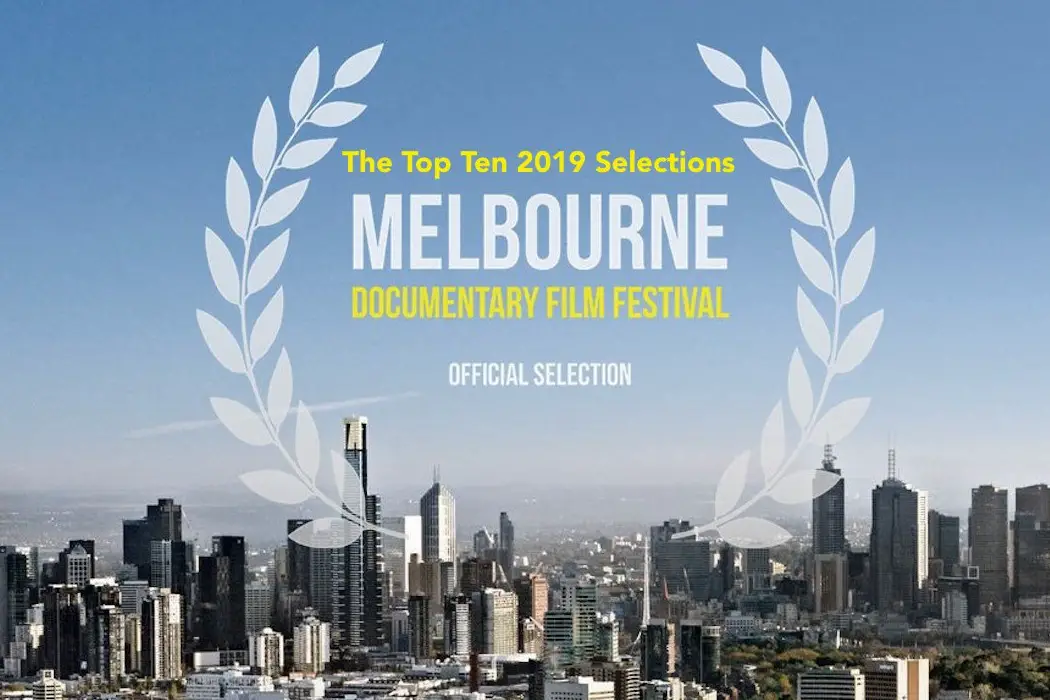
Alex is a 28 year-old West Australian who has a…
Running from the 19th – 30th of July this year, the acclaimed Melbourne Documentary Film Festival has returned with a loaded program filled with local and international delights, mixing world premieres with festival favourites arriving on our shores.
Frequently ranked in the top 2% of film festivals in the world throughout its past three year run, the MDFF begun as a small showcase of the types of documentaries that don’t usually receive theatrical distribution in Australia, swiftly growing into a major stepping stone for independent films and filmmakers to gain recognition and a larger audiences with their singular pieces of art.
As their 2019 program has just dropped, I’ve selected the top ten films I’ve had the pleasure of previewing, and would recommend to any audience member lucky enough to catch one of their screenings at the Cinema Nova and the Backlot Studios.
1. Davi’s Way (Tom Donahue)
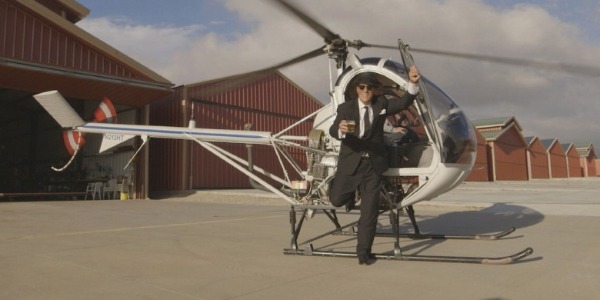
To put it simply, Tom Donahue’s amazingly candid Davi’s Way is a perfect portrait on the harsh disconnect between your artistic dreams and a pragmatic reality that refuses to conform to your imagined ideals; whether that be your career, forming a concert, being in Hollywood or hell, even being a documentary director. The premise is simple: Character actor Robert Davi, who when not playing the Hollywood heavy (The Goonies, Showgirls, Licence to Kill), tours the US with his impressive Frank Sinatra tribute act. With his 100th birthday coming up, Davi wished to do the ultimate eulogy; recreating Sinatra’s beloved 1974 Madison Square Garden performance, which took place in a boxing ring, surrounded by thousands of excited concert goers.
The Italian-American actor had one year to prepare for this tribute, which turned into weeks of complications and headaches that has been condescended down to an efficient 85 minute package that uses cartoonish inter-titles to keep us updated on the rapidly-shifting timeline. What sets Davi’s Way apart is its titular process: It simply isn’t a fun play on Sinatra’s song, this is an incredibly frank (wink) and shockingly honest portrayal of the actor Robert Davi, his life, career, friends and family and how one little artistic wish – done his way, so to speak – completely fell apart.
Davi’s Way spotlights the necessity to compromise; initial requests for Lorde and Jay-Z to join Davi on-stage dissipate quickly, an aspiring actor who is hired as Davi’s assistant wrestles with how much humiliation he can take in pursuit of a possible future in the industry, the size of the venue shrinks over-time (as finding a place that can fit a boxing ring & have a realistic crowd size provide impossible) and the general realities of trying to assemble a 35-song, 3 hour long Frank Sinatra concert when you’re not an established musical superstar.
Every disappointing update is punctuated with Davi’s old-school attitude, frequently chiding those around him, whether it’s the camera crew for their lens/angle choices, his assistant for wearing a hat in the same room as him, questioning his daughter’s own artistic desires, with each one more uncompromising than the last. Whether intended or not, Davi is unafraid to present himself as an unlikeable figure (his outspoken support of Donald Trump is not mentioned), but like any documented train-wreck, at least it was all worth it for Donahue’s fascinating documentary. It is essential viewing for anybody who wishes to watch how most people’s Hollywood fantasies usually conclude – it ain’t always a fairy-tale ending.
2. The Ghost of Peter Sellers (Peter Medak)
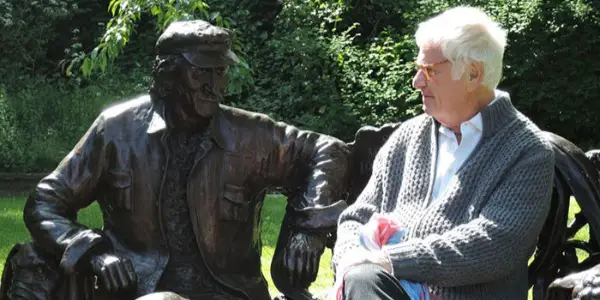
Speaking of the death of artistic dreams, Peter Medak’s poignant retrospective on his failed 1974 Peter Sellers pirate comedy Ghost in the Noonday Sun, is not only a captivating rundown of what went wrong, but is also a touching meditation on reconciling the past, and what it means to define ourselves through our failures. The Ghost of Peter Sellers, much like the recent Lost Souls – which detailed Richard Stanley’s disastrous 1996 making of The Island of Dr. Moreau – has Hungarian director Peter Medak, whose prominent titles include The Krays, Romeo Is Bleeding and The Changeling, revisiting the people and places that were involved in the botched production of Ghosts in the Noonday Sun, with most of his interviewed subjects giving the same common answer; Peter Sellers was a nightmare to work with.
In 1973, coming off three independent successes (The Ruling Class being the major one), Peter Medak was handed his first major project: A $2M production of Peter Sellers and Spike Milligan’s latest collaboration, a sweeping 17th century comedy that would shoot in the sunny seas of Cyprus. It all sounded perfect, but problems arose from practically day one; the script was regarded as terrible by everybody, the complications of shooting on sea caused frequent technical difficulties and constant bad weather lead Sellers to quickly lose faith in the director – even attempting to stage a mutiny to kick him off. Even the late arrivals of Seller’s close pals, Spike Milligan and actor Anthony Franciosa, failed to resuscitate the collapsing project.
Despite the amount of uncontrollable environmental and technical accidents that befell him, Medak took the failure at heart – the film was finished, but it was considered so bad that it was shelved by Columbia Pictures, and Sellers attempts to buy it back and re-edit it proved to be too expensive. Despite his erratic behaviour – including faking a heart attack to leave set – The Ghost of Peter Sellers beautifully allows the guilt-ridden director to exorcise his demons; against himself, against Sellers and against the film itself, (which was finally released on DVD 3 years ago), within this surprisingly eloquent contemplation of a well-intentioned misfire.
3. Ballad of a Righteous Merchant (Herbert Golder)

Unlike My Best Fiend, Herbert Golder’s Ballad of a Righteous Merchant actually depicts a friendship with Werner Herzog as an affectionate connection – not a single death threat or chokehold in sight. After meeting in Greece, professor Herbert Golder became a life-long friend and collaborator of Herzog, working on over ten of his projects, with his most prominent involvement being his co-writing credit on 2009’s My Son, My Son, What Have Ye Done?.
Clocking in at only one hour, Ballad of a Righteous Merchant is strictly for fans of Werner Herzog, it’s light on contextual details and assumes you’re well aware of the man, his reputation and his general off-beat directorial process. Shot in San Diego, far away from the Peruvian forests of Fitzcarraldo that were documented in Les Blanks’ Burden of Dreams, the production of My Son, My Son seems to be perfect compared to his more daring ventures of the 1970’s, but the candid insights into how Herzog manages his actors and crew will always be of interest.
Affixed with a voiceover by Golder, who delivers solemn readings of Herzog-like dialogue, this documentary tracks how his fascination with Mark Yavorsky, an actor who murdered his mother in the fashion of a Greek tragedy, eventually developed into the film, My Son, My Son, What Have Ye Done?, which starred an intensely loaded cast of beloved character actors; Michael Shannon, Willem DaFoe, Chloë Sevigny, Udo Kier and even Dave Bautista in an early role. This is for film-making fans only, but for those who fit within its arthouse grooves, will be handsomely rewarded.
4. BOOM! A Film About the Sonics (Jordan Albertsen)
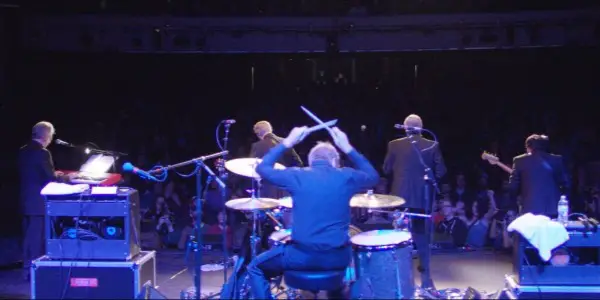
It’s fitting that a rock band as subversive as The Sonics is given an equally subversive documentary with Boom! A Film About the Sonics. Skilfully directed by Jordan Albertsen, Boom! might have all of the elements of the traditional rock music bio-pic; talking heads, archival concert footage and contemporary performances, but what makes this film stand out is their music – The Sonics are cited with inventing punk rock – and the artists that they went onto to inspire is inspiring in itself; Bruce Springsteen, Nirvana and The White Stripes just to name a few, and this biography refuses to be a reverential reflection or a linear recount of their Wikipedia page, it’s moreso a celebration of their talent and what their ground-breaking work did for the Seattle music scene, the individual band members and just music in general.
Forming in 1960, the five-piece band made up of founders Larry and Andy Parypa and a rotating mix of different drummers, saxophonists and keyboardists found quick success with their cover of Richard Berry’s “Louie, Louie”, which laid the foundations of their most prominent single (and other Berry cover) “Have Love, Will Travel”. Their version, which reworked the song through fuzzy guitars and screaming vocals, defined that decade of music, and was the fore-father to the garage-rock movement of the 1990’s, which as Albertsen finds out in his film-making journey, was the period where The Sonics‘ lagging relevancy was kick-started, rejuvenated by their inclusion in a prominent punk-rock compilation CD.
Thoroughly comprehensive and thoughtfully composed, Boom! is an essential document for fans of the band or just punk rock in general, introducing new audiences to the pioneers of the genre.
5. Fuck You All: The Uwe Boll Story (Sean Patrick Shaul)
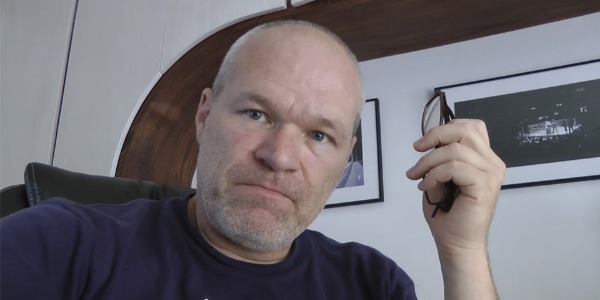
As detailed in The Ghost of Peter Sellers, nobody sets out to make a bad movie, but there may be an exception when it comes to the reviled filmography of Uwe Boll. The German filmmaker was quick to make a name for himself in the early 2000’s when, exploiting a certain German tax loophole, he was able to fund a series of highly controversial video-game movies that rewarded him the undesirable title of “worst director ever”, placing him alongside Ed Wood and Jason Friedberg & Aaron Seltzer.
With Detective Pikachu and Sonic the Hedgehog both fighting to restore the shattered reputation of the “video game film” this year, it’s quite fitting that Sean Patrick Shaul’s hagiographic profile of the man that single-handedly tainted the genre would arrive at the same time. Subtly named Fuck You All: The Uwe Boll Story, Shaul may be the credited director but this is really the Uwe Boll Story by Uwe Boll, a gushing biography supported by a series of talking heads who voice their support of his work – frequent collaborators like Michael Pare, Keith David and Clint Howard are amongst the few to sing the praises of the man who is hated by so many.
House of the Dead, Alone in the Dark and Bloodrayne were some of the few titles that cemented Boll’s reputation, as well as his performative personality. He’s always been happy to call out Hollywood phoniness and his hatred for his detractors, which resulted in his infamous series of boxing matches against some of his more vocal internet critics. This outrageous behaviour prevents us from truly getting close with Boll within his own biography – it’s hard to tell when he’s acting or when he’s being honest, especially when the documentary mixes in clips from his video podcast, where he rants Alex Jones-style about the film industry.
There is also not enough done to identify exactly why he earned such a hideous reputation; straight to video auteurs like Albert Pyun or David DeCoteau have made a countless number of films of equal sloppiness, but there was a missed opportunity in digging into the narrative/technical issues that plagued his filmography, which fuelled the indignation of video game fans unhappy with his callous treatment of their beloved properties. This is a film as direct as its title, and despite its insistence on building straw-men arguments to deflect from the scrappiness of Boll’s well-known misfires, it’s interesting as a rare insight into what makes a man like him tick – or more suitably, how one keeps creating art when the whole world says you’re terrible, an unkind social pressure that has now been levied against the equally infamous Tommy Wiseau.
6. J.R. “Bob” Dobbs and The Church of the SubGenius (Sandy K. Boone)
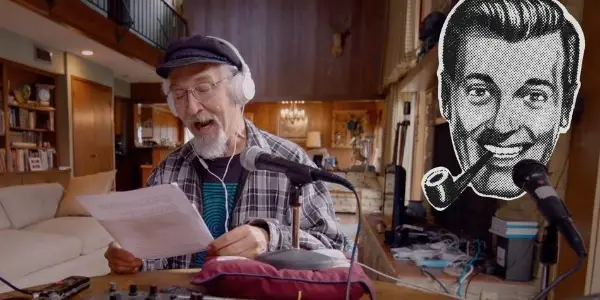
In this current age of meme culture and irony poisoning, it seems like the founders of The Church of the Subgenius were well ahead of their time. Established in the 1970’s as an in-joke between two Texan friends, The Church of the Subgenius begun as a pastiche of old 1950’s sci-fi paraphernalia and scientology-inspired religious fanaticism that was diluted into a largely-forgotten newsletter that eventually developed into a yearly tradition where its select members play out the same apocalyptic scenario (titled “X-Day), all-in on the ironic gag, but refusing to smirk at each other during the bizarre ritual.
This is all comically depicted in Sandy K. Boone’s debut feature, clumsily titled J.R. “Bob” Dobbs and the Church of the Subgenius, making its way to Australia after its premiere at SXSW earlier this year. The best way to describe the strange subculture of the titular Church is if Mad Magazine had developed their own religion during their prime, with the gap-toothed Alfred E. Newman as their fictional God. Much like the infamous Mad Magazine character, the co-founders Douglass St. Clair Smith and Steve Wilcox picked their comical diety from a catalogue of clip-art – thus the pipe-smoking, 1950’s-styled father figure J.R. “Bob” Dobbs was born.
Much like Mad Magazine – or even the old National Lampoon compendiums – the sardonic church cultivated its peculiar strain of humour within its cult-forming newsletters, which Boone attempts to translate and illustrate through a parade of talking heads (which include director Richard Linklater and magician Penn Jillette), archival footage, doodled animations and more, giving us both a nostalgic account on this underground movement and how their sci-fi inspired dystopia applies to each decade of history, up till today, where the documentary earns its whole-hearted earnestness. Today’s news may look severely grim, and some may feel that there’s no place for an out-dated religious mockery within our midsts, but as Nick Offerman solemnly mentions: “we desperately need comedy”.
7. Dog’s Best Friend (Eryn Wilson)
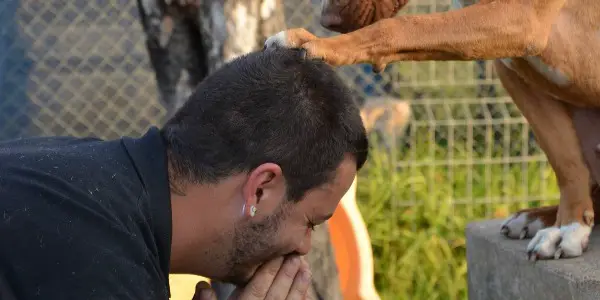
If there’s one thing to take away from the John Wick franchise, whose third entry just wiped the floor with this week’s box office, is that dogs truly are man’s best friend. This sentiment is lovingly evoked in Eryn Wilson’s tender documentary Dog’s Best Friend, which sets out to clarify the misconceptions about dog breeds that are usually stigmatised as “dangerous”, a label most notably applied to pitbulls. Our passage into gaining a greater understanding of the complex nature of pet psychology and dog training is Jacob Leezak, the founder/owner of the Canine Behaviour Expert Dog Psychology Centre, based in New South Wales Australia.
A common theme in this year’s documentary selections is the idea of demystification; taking familiar mainstream concepts and breaking them down for the audience, usually untangling their known ‘controversial’ elements. Here, Dog’s Best Friend seeks to challenge people’s prejudices against certain breeds, foregrounding the potential to rescue – both physical and mentally – dogs that have been through hell, whether it’s from domestic abuse, dog fighting, abandonment and more, instead of just killing them.
There’s always a natural joy in seeing these various dogs – who were all saved from euthanization – being given a second chance, but luckily Wilson’s film doesn’t just rely on their adorable faces for our viewing comfort. As the title implies, time is equally dedicated to the hard work of Leezak, who is introduced quickly rejecting the title of “dog whisperer”, noting that it’s a dedicated mixture of hard work and commitment that makes for good dog training, not just simple ‘luck’ or the occasional pat on the head.
Dog’s Best Friend shares the same appeals as last year’s festival hit Pick of the Litter, which also explored our loving bond with our beloved four-legged pets, and how that collaborative bond is based on trust and devotion, something a dog can deliver in spades if given the right home.
8. New Homeland (Barbara Kopple)

Barbara Kopple is a legendary figure within the world of documentary filmmaking, so any new release is always anticipated, and her latest slice of cinema vérité, New Homeland, doesn’t disappoint. After illuminating audiences in 2017 with A Murder in Mansfield, Kopple has returned to set the record straight when it comes to the US’ increasing fear of Middle Eastern immigrants.
Debunking the common, often crudely stereotyped idea of immigrants being either job-stealers, free-loaders or terrorists in the making, New Homeland is a thoughtful portrait of three boys from seperate families who have finally made the brave journey to migrate to Canada, abandoning their homes for the promise of better lives and the often difficult social integration that follows. After meeting each of the three families, two Syrian and the third from Iraq, Kopple follows the three boys as they enter Camp Pathfinder in Algonquin Park, an intimate camp that allows displaced children a chance to make friends and familiarise themselves with their new homes.
Although it sometimes borders on becoming an extended advertisement for the camp, offering viewers insights into the strict but loving supervision of the guidance councillors who run the show, it eventually develops into a candid sketching of the harsh realities that most immigrant children must unfortunately face, deflating President Trump’s scare-mongering tactics of evil caravans rushing towards our borders. Out of the ten documentaries featured on this list, New Homeland feels the most necessary,
9. Trust Machine: The Story of Blockchain (Alex Winter)

Actor-turned-director Alex Winter’s prolific documentary work has made him the definitive filmmaker for capturing today’s latest technological trends – whether it be file-sharing in his first documentary Downloaded, the depths of Silk Road in Deep Web or hell, even showcasing the latest YouTube stars when he helmed The Smosh Movie back in 2015.
His slick style lies somewhere between Louis Theroux and Morgan Neville, imbued with a fascination of the rapidly shifting internet climate and how these changes can bring about financial and socio-political innovations that can be both mutually harmful and wonderful – luckily he keeps his glass half full when gazing at the possibilities.
He has returned with Trust Machine: The Story of Blockchain, a perfect introduction into the complex world of Bitcoin and Blockchaining technology. Narrated by Rosario Dawson, Winter introduces uninformed audiences to the important what’s and why’s of these groundbreaking technological systems, it’s possible global social and economic benefits and why the governments – and big businesses – are so afraid of its untapped potential.
Our full review can be found here.
10. Forged From Fire (Andrew Garton)
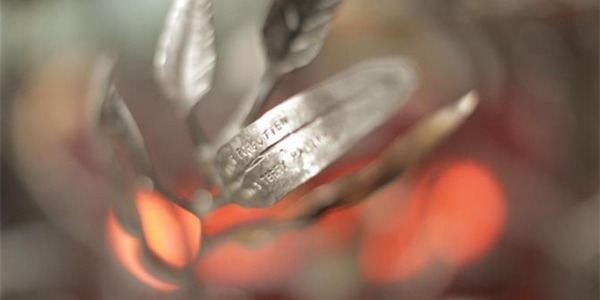
As we’ve come to pass the 10th Anniversary of the Black Saturday fires, it still feels understated how much of an absolute tragedy it inflicted upon Australia, a day that redefined the country – and the bushland it contains – forever. For the non-Australians who may be unaware of what happened, on the 7th February 2009, over 400 fires burned over 450,000 hectares of land in north-eastern Victoria, equating in the loss of over 2029 homes and 69 businesses. Dubbed the Black Saturday Bush-fires, the massive disaster, which caused the deaths of 173 citizens and over 1 million wildlife animals, left the nation in mourning, leading to a countless number of fundraising efforts, community building and bushfire awareness changes across the country.
Whilst there’s been a number of television and feature films covering the devastating day, Andrew Garton’s independent entry Forged From Fire examines the aftermath of the fires and how those affected dealt with the aftermath – more specifically, how thousands of people, including blacksmiths, artists and florists, came together to build their own unique memorial. Named the Blacksmiths’ Tree, the silvery three tonne, stainless steele and copper gum tree stands at nearly 10 metres tall (that’s 32 feet to you Americans), a public monument that both immortalises those who were lost on that day, and those who remain to pick up the pieces.
Forged From Fire is a film filled with small, perfectly pitched moments of honest sincerity, capturing people’s personal testimonies with a candid level of earnestly delivered truths – not just about their own lives in the wake of the bushfires, but what the big metal memorial means to them. For Australians in particular, this one is aimed directly at the heart, and by its soulful conclusion, it hits hard.
The dates for this year’s Melbourne Documentary Film Festival are 19th – 29th July 2019. Details about other films on the lineup, dates and session times can be found here: http://mdff.org.au/
Are you interested in any of these documentaries? Let us know in the comments!
https://www.youtube.com/watch?v=E_QrQPLS9fM
Does content like this matter to you?
Become a Member and support film journalism. Unlock access to all of Film Inquiry`s great articles. Join a community of like-minded readers who are passionate about cinema - get access to our private members Network, give back to independent filmmakers, and more.












